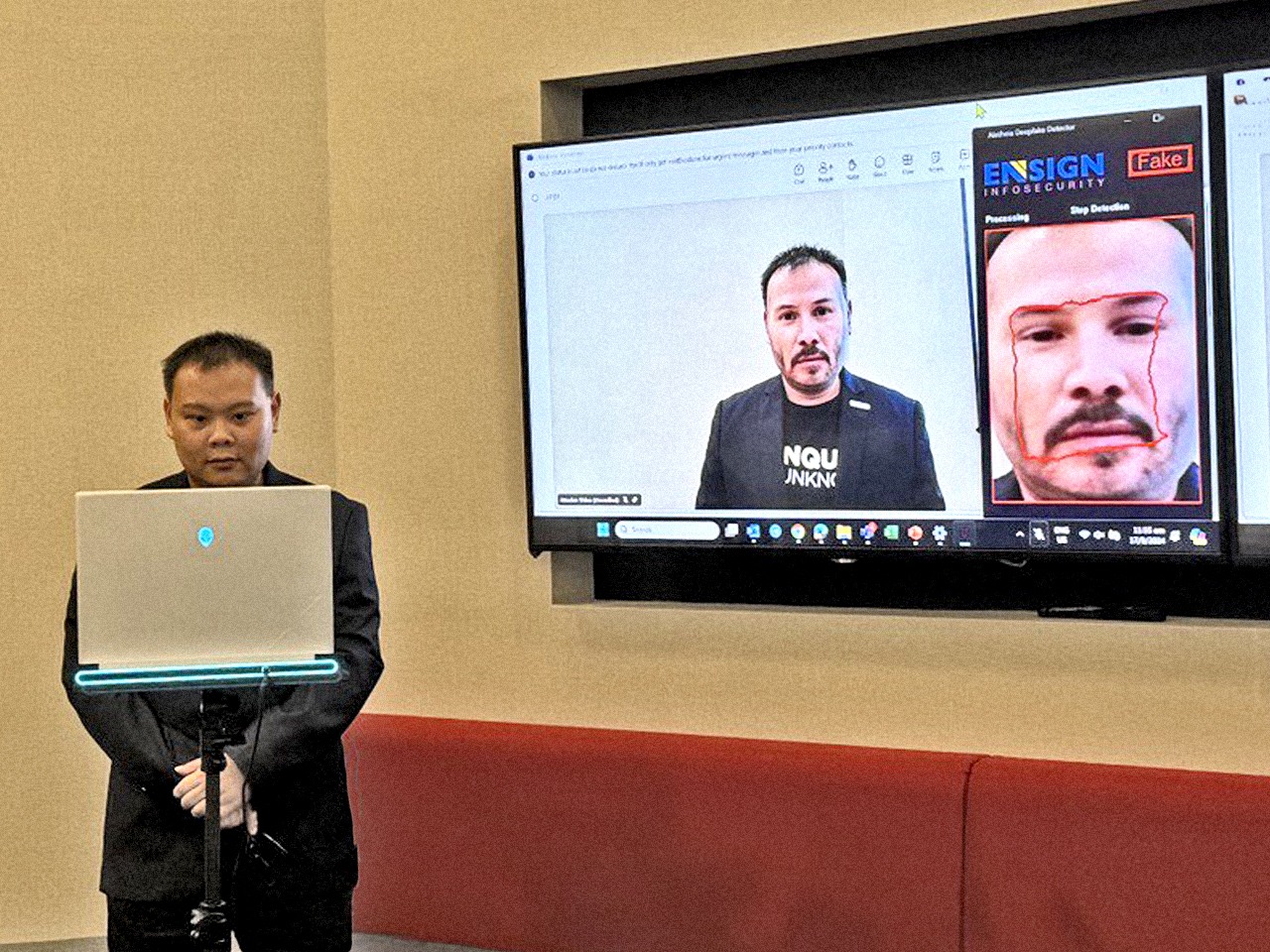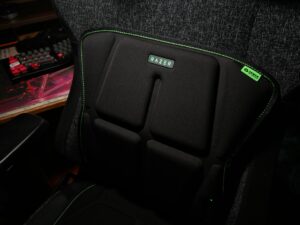
Ensign Infosecurity yesterday unveiled an AI-powered solution, called Aletheia, that promises to detect deepfakes in real time and protect against the growing threat of hyper-realistic audio and video manipulation.
The software tool can alert users in financial institutions, manufacturers, public sector agencies and other organisations to the presence of deepfakes during virtual meetings within seconds, according to the Singapore-based cybersecurity company.
Deepfakes are a global issue, often used by scammers to commit financial fraud, disrupt political landscapes by portraying political figures saying or doing things they never did.
There has been a 3,000 per cent increase in deepfake fraud attempts in 2023, according to identification verification provider Onfido.
The rise in deepfakes highlights the importance of detection tools like Aletheia, especially as Singapore prepares for its next general election.
In June, a deepfake video of Senior Minister Lee Hsien Loong commenting on international relations and foreign leaders was circulated, prompting him to post a statement on Facebook clarifying that the video was fake.
Earlier this month, ST Engineering also unveiled its deepfake detection software called Einstein. Other tools available include cloud-based solution Sentinel allowing users to upload AI-forged deepfakes to be uploaded to its website for investigation; and Sensity which is a multi-modal real-time detection system.
The sophistication of deepfakes has improved due to advancements in GenAI and large language models (LLM), which make their detection increasingly difficult.
“Malicious actors now have the ability to create convincing fake audio and video at minimal cost and effort, posing risks ranging from commercial fraud to political disinformation,” said Lee Joon Sern, vice-president, machine learning and cloud research, of Ensign Labs, the R&D arm of Ensign Infosecurity.
Aletheia was developed to address this issue, he told reporters yesterday. It can spot video and audio deepfakes as the virtual conversations take place and provide an alert immediately, he added.
The new AI-powered solution will be available to enterprises and governments from next month. It promises to identify manipulated content with an accuracy of up to 90 per cent.
Open-source tools were used to create a large dataset of deepfake video and voices, which trained the AI models powering the Aletheia. The software leverages AI algorithms to analyse video pixels and audio frequencies in real time.
During a demonstration, Lee showed how Aletheia can quickly detect a deepfake during a video call, using an impersonation of pop star Taylor Swift as an example.
Explaining how Aletheia spots the deepfakes, Lee said: “When an image or video has been faked using software, it leaves behind patterns in how the pixels are arranged.”
“These patterns are not natural and can signal that the content has been edited or generated by an algorithm, rather than being a real, unaltered photo or video,” he noted.
“Aletheia looks for these unnatural patterns to detect whether the content has been manipulated, even if it looks convincing to the human eye,” he explained.
For cyber forensic purposes, the tool can extract summaries of video streams and scans for further investigation, he added.
The same process applies to detecting voice deepfakes, as demonstrated by a user faking Senior Minister Lee Hsien Loong’s voice, which Aletheia detected promptly.
The audio technology is considered a breakthrough, said Lee. His team discovered that different operating systems have varying audio drivers, requiring separate verification processes.
“We are not scanning the audio files but the audio streams before they reach the speakers, that is what we have achieved,” he explained.
To facilitate voice deepfake detection, the tool has to be integrated with the user’s device operating system. Ensign has filed a patent for this technology.
Aletheia operates discreetly in the background and is available as an endpoint software application for Windows users or as a Chrome browser plug-in for other systems.
At just 500MB, the application is small and compact and can run locally on users’ laptops, thus ensuring privacy and preventing latency issues often encountered on cloud-based solutions.
Although this software is best suited for verifying real-time identities, it can also authenticate people in YouTube videos. A mobile version is in development.
Aletheia can also be integrated into enterprise cybersecurity infrastructure, providing organisations with additional insights into their overall digital security, according to Ensign.
Tan Ah Tuan, head of Ensign Labs, emphasised the importance of keeping pace with the evolving technology landscape.
“The democratisation of deepfake technology has raised serious societal risks, from commercial frauds to the manipulation of public opinion,” he said.
The arms race between creating and detecting deepfakes will only intensify, he added, so the detection system must continuously evolve to combat the latest threats.






